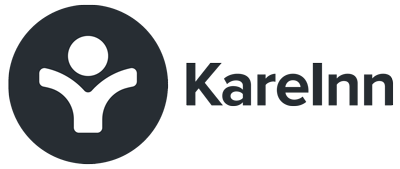John Lanyon, Co-Founder of KareInn, reviews the Government’s updated roadmap for better data for adult social care and discusses how data is helping care homes meet their Adult Social Care Outcomes Framework objectives.
The Government recently updated its roadmap for better data for adult social care, describing the plan as an important step in addressing transformation.
In the updated roadmap, the Minister of State for Care said that while some care providers, local authorities and other organisations are trailblazers in the use of data, digital tools and technology, overall adult social care as a sector lags behind healthcare: “while we have come a long way in improving the data that we collect and use, there is still much more to do”.
We are seeing every day how tech in care homes is helping to improve resident satisfaction and maximise operational efficiency. From improved communication, enhanced resident safety and wellbeing, streamlined operations, and a facility for data-driven decision-making, the sector is slowly but surely seeing the benefits of digital. But to keep up with the pace of change, any transformation needs to align with the important targets care homes must reach.
Aligning with the ASCOF
The Adult Social Care Outcomes Framework (ASCOF) measures how well care and support services achieve the outcomes that matter most to people. The framework plays a crucial role in ensuring the quality, transparency, and accountability of adult social care services.
By setting clear objectives, measuring performance, and providing a framework for evaluation, the ASCOF encourages care providers to identify areas for improvement, implement changes, and monitor the impact of their interventions. This drives a culture of learning and innovation, ultimately leading to better outcomes for service users.
If we break down the benefits of digital, and specifically data driven decision-making, we can see just how it supports care homes in reaching their ASCOF targets, and how it will help them along the Government’s data roadmap.
Developing personalised care
We’re seeing digital care records enable care homes to capture and store comprehensive information about each resident’s needs, preferences, and goals. This information can be used to develop personalised care plans and ensure that care is tailored to individual requirements. By leveraging digital care records effectively, care homes can improve care planning, documentation, communication, and monitoring of outcomes. This, in turn, supports the objectives of the ASCOF, promoting person-centred care, accountability, quality improvement, and the overall wellbeing of residents.
Digital care records allow care homes to track and monitor outcomes related to the ASCOF measures. By recording and analysing data on service user feedback, quality of life indicators, and other relevant metrics, care homes can evaluate the effectiveness of their interventions and make evidence-based improvements to their care practices.
Creating an audit trail
Digital care plans help care homes meet regulatory requirements and demonstrate compliance with relevant standards. These records provide a documented audit trail of care interventions, ensuring transparency, accountability, and adherence to best practices in care provision.
Digital can also streamline the documentation process by providing a centralised platform for recording care interventions, assessments, and outcomes. This ensures that documents are completed efficiently and accurately, supporting effective communication among care teams, and ensuring the continuity of care.
A facility for integrated care
Crucially, digital care records facilitate efficient and secure information sharing among care professionals, residents, and their families. Individuals can access up-to-date information about a resident’s care plan, medications, allergies, and other relevant details, enhancing communication and collaboration across the care team.
The wealth of data that is created by digital care planning can be analysed to identify patterns, trends, and areas for improvement. Care homes can generate reports and dashboards based on this data, enabling them to monitor performance, measure progress, and identify areas where they can enhance the quality of care and outcomes.
Data and the insights they provide are fundamental to ensuring that people who draw on care and support can access high quality care and achieve the outcomes that matter to them. Digital care records play a significant role in helping care homes meet the objectives of the ASCOF.
As the Government’s roadmap states, we are embarking on far-reaching reforms. But we as a sector must continue to champion data and its benefits, to drive social care forward at the right pace. We must continue to champion evidence-based digital technology, and its ability to deliver end-of-life altering care and personalised services that address persistent unmet needs across residential care.



